Most people don't know how to make iced coffee properly: here's how baristas do it
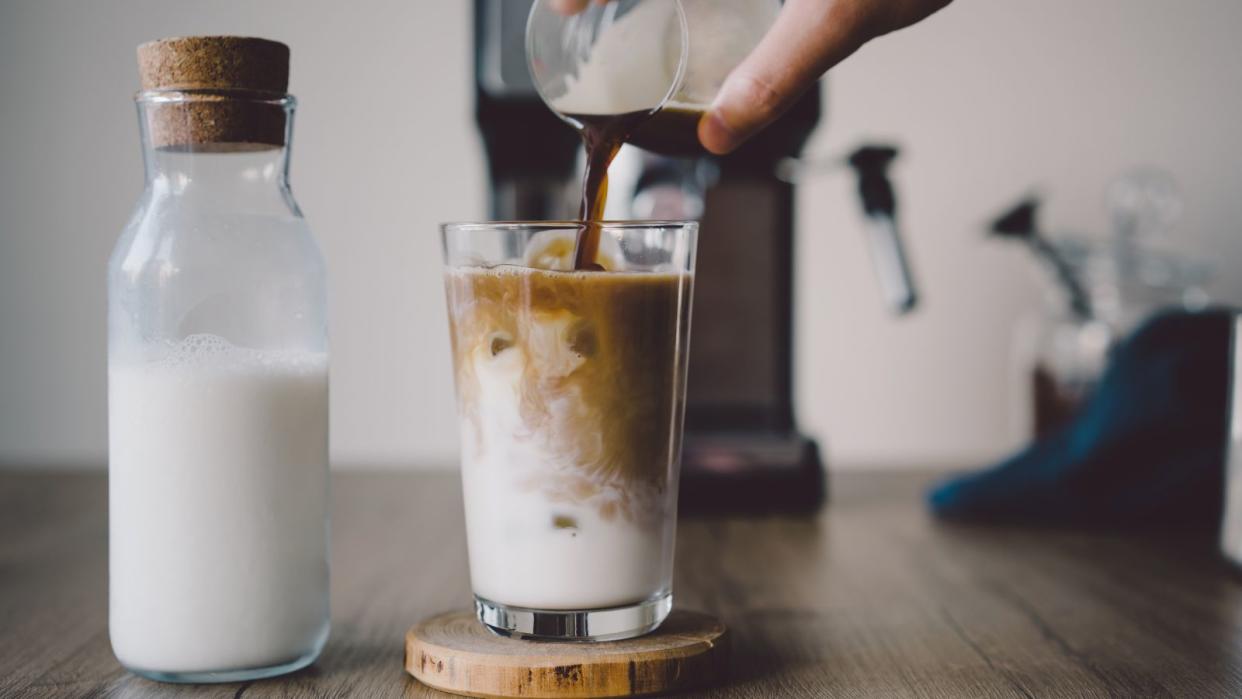
Knowing how to make iced coffee from hot coffee is an art. If you're pouring hot coffee directly over ice, you're doing it wrong. Your coffee will be bitter and overly diluted, so you won't be able to enjoy the earthy, sweet balance of coffee aromas.
As a barista, my summers were consumed by iced coffee. I was trained to make Japanese iced coffee; American iced coffee; and I also learned how to make cold brew coffee. All of these methods cool at different rates, which is why they have different flavor profiles. The slower the process, the sweeter and more balanced your coffee will taste.
I reached out to the barista community to get some extra tips and tricks for making iced coffee from hot coffee. Without fail, they all recommended using a coffee maker. They also had plenty to say on the cold brew vs iced coffee debate. So, here's everything you need to know to spice up your iced latte into something a little sweeter.
What is iced coffee?
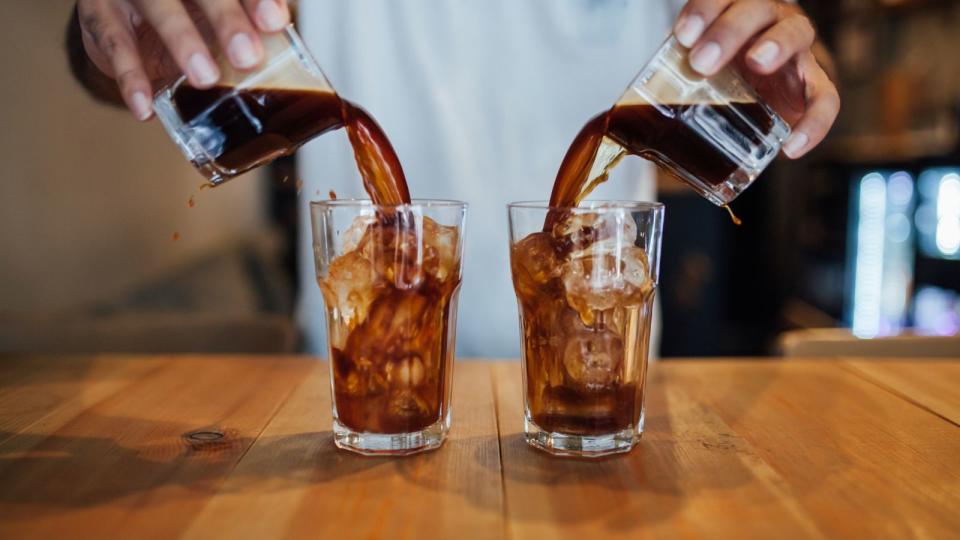
Not to be confused with cold brew, iced coffee is coffee which has been brewed hot and then cooled down, normally with ice. Brewing at a higher temperature and pressure gives a much fiercer extraction of the essential oils in coffee beans, so the flavor profile can be quite bitter. As your coffee cools, it will oxidise and become more bitter. Americanos in particular can have a real tang. That's why iced coffees often have milk added to them; the sweetness re-balances the flavors.
Contrary to popular misunderstandings, iced coffee is not the same as cold brew. I have a guide to making cold brew coffee, which explains the process in detail. Rather than use high pressure and temperatures, cold brew takes at least 12 hours. Over that time, the coffee grounds remain at room or refrigerator temperature, so their flavors are extracted slowly and delicately. This gives a much sweeter, mellow flavor, but the results need to be diluted with water or milk.
How to make iced coffee

There are a few ways to make iced coffee, mostly mixing up the order of ice and coffee. I spoke with baristas to find the perfect process for every method. If you're in a hurry, there's no problem with pouring your hot coffee over ice. However, if you are willing to dedicate a little more time to your coffee, you'll reap the rewards. Slowly cooled coffee can be much more balanced and aromatic, plus you can prep ahead, so you always have iced coffee ready.
Slow cool
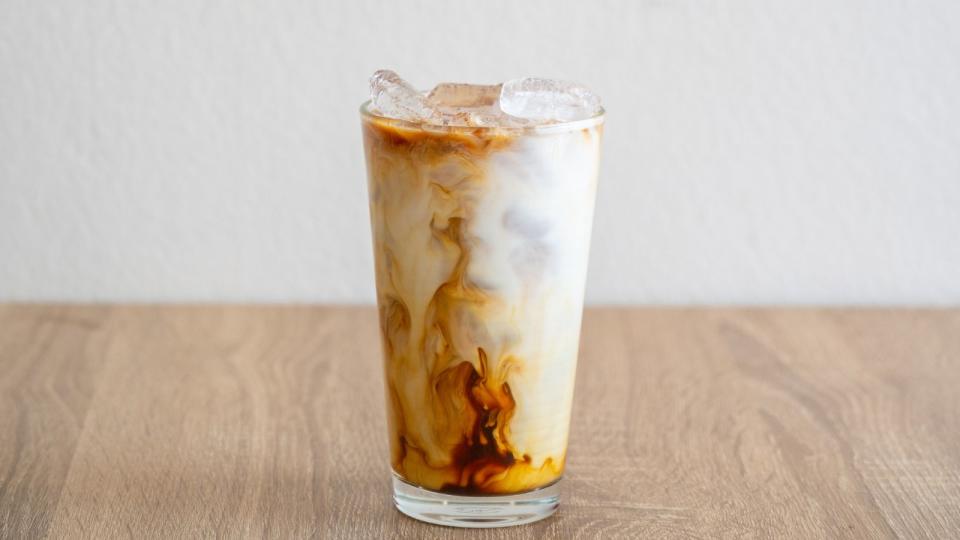
The slow cool method is self explanatory and is also a great way to stop extra hot coffee from going to waste. Simply brew your coffee, using whichever method you prefer. Then, let it cool to room temperature, or place it in the refrigerator to speed the process up a little. It'll take a while, so it's good to have your coffee cooled a few hours before you want it.
If you have some hot coffee spare, you could make coffee ice cubes. Pour them into an ice cube tray like this at Walmart. You can put these into your hot coffee, or just fill a jar with coffee ice cubes and wait for them to melt. Using ice cubes or the slow cool method requires more planning and preparation, but it pays off. Kayla Stavridis from Barista HQ told me that 'from my experience letting the coffee cool naturally to room temperature before refrigerating has always resulted in a less bitter taste'. This is because cooling, already bitter coffee quickly, oxidizes your cup of joe, outbalancing the subtle, sweeter notes.
Flash Brew
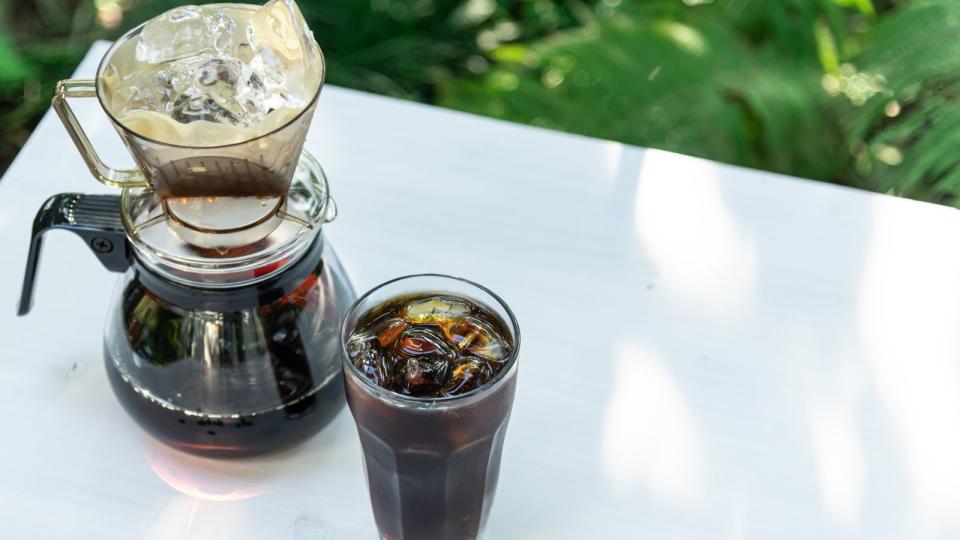
The flash brew method, also known as Japanese cold brew, is the quickest and easiest way to make iced coffee. You'll have probably tried it by accident. If you like black coffee, this is likely to be your method of choice, since it keeps the bitter, acidic, and sweet notes of normal coffee. I spoke with Maryna Gray, coffee expert and Director of Coffee at Bean Box to find her perfect ratio for iced coffee. She recommends using 1.8 oz of coffee, brewed with 18.4 oz of water. Once you have brewed it, using your preferred method, you can pour it over 10.4 oz of ice in a glass carafe. The coffee will melt the ice cubes, so transfer them into a new iced coffee cup, filled with ice, and it'll be ready to drink. If you want to adjust the quantities, Maryana's perfect ratio is one part coffee to ten parts water and six parts ice.
Oli Base, professional barista, told me that his preferred method used a drip coffee maker. He said 'The best way to make an iced coffee quickly is to brew a drip coffee directly onto coffee ice cubes. if you have a drip coffee machine, then fill your carafe half way up with coffee ice cubes and then brew half a carafe of coffee as you normally would.' If you don't have coffee ice cubes, just make sure that your coffee is twice as strong, so that the normal ice cubes don't dilute it too much.
Quick espresso method
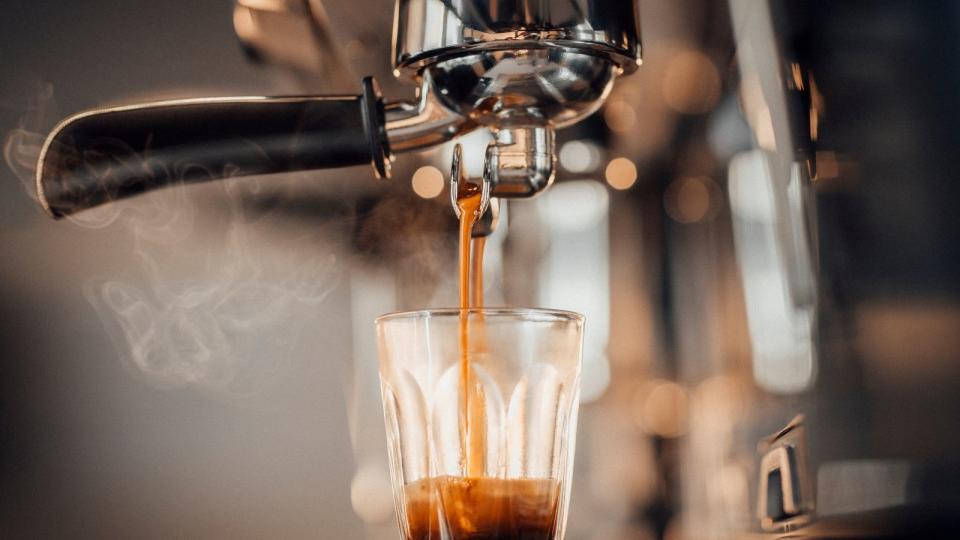
If you like the sound of flash brew, but don't have much ice, this is a brilliant method. Make an espresso shot, which will be warm, but then dilute it with as much ice cold water as you would have used hot water. Pop in a couple of coffee ice cubes and your coffee will be perfectly iced. You can – dare I say – do the same with instant coffee. Just make sure that all of the instant coffee has properly dissolved before adding any milk or water.
Using a coffee maker

Coffee makers and espresso machines sometimes have an 'over ice' function. For example, the De'Longhi Dinamica will brew an over ice coffee at a slightly lower temperature so that it extracts a balanced and flavorful shot which can also offset any dilution that might happen from the ice. All you need to do is fill a glass with ice and press a button.
I'd follow a similar method using an espresso machine like Breville's Barista Pro. You can adjust the settings to achieve a more concentrated, but mellow shot. Pull your shot into an espresso cup and then pour that gently over coffee ice cubes or normal ice. Then, you can dilute with cold water and milk to suit your own tastes.
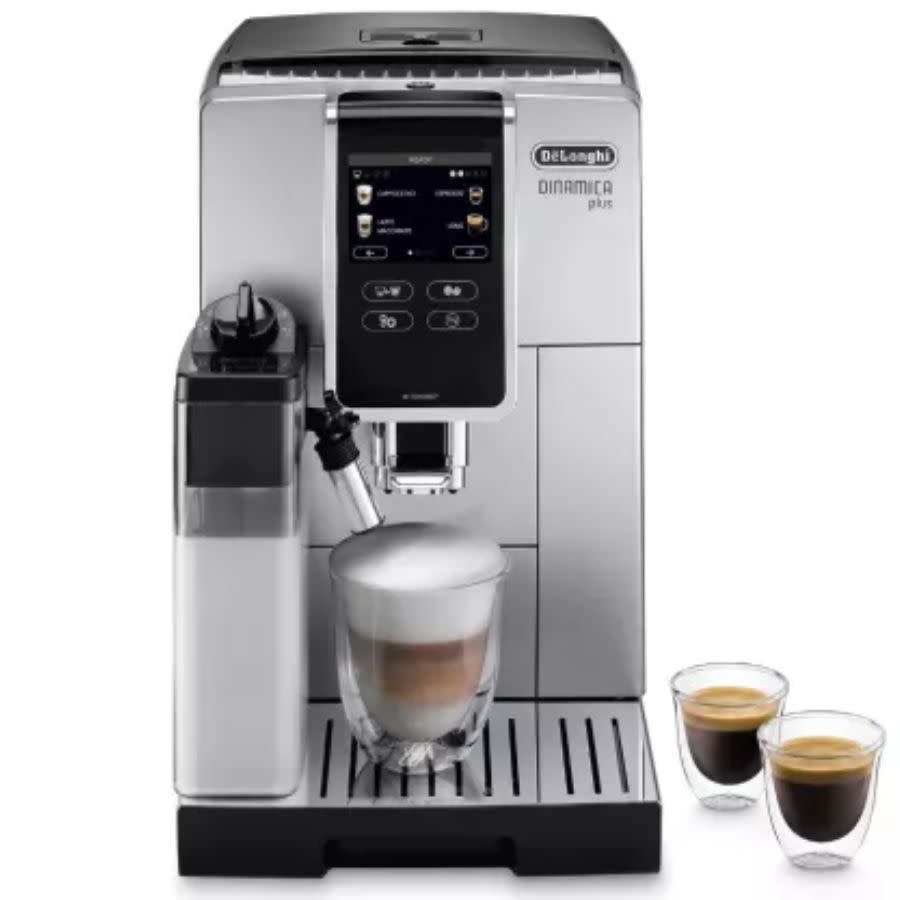
De’Longhi Dinamica Plus Coffee Maker: Brad Pitt's choice
The Dinamica is a dynamic coffee maker, with over 16 different coffee settings, a brilliant milk frother, and premium finishes. The over ice option adds an extra level to this machine's capabilities. Rather than producing a normal shot, it anticipates how your coffee will change over ice.
For
Integrated milk frother
Simple touchscreen controls
Range of coffee options
Easy to clean
Against
Expensive
Heavy
Milk frother can be messy
Wasteful set-up process
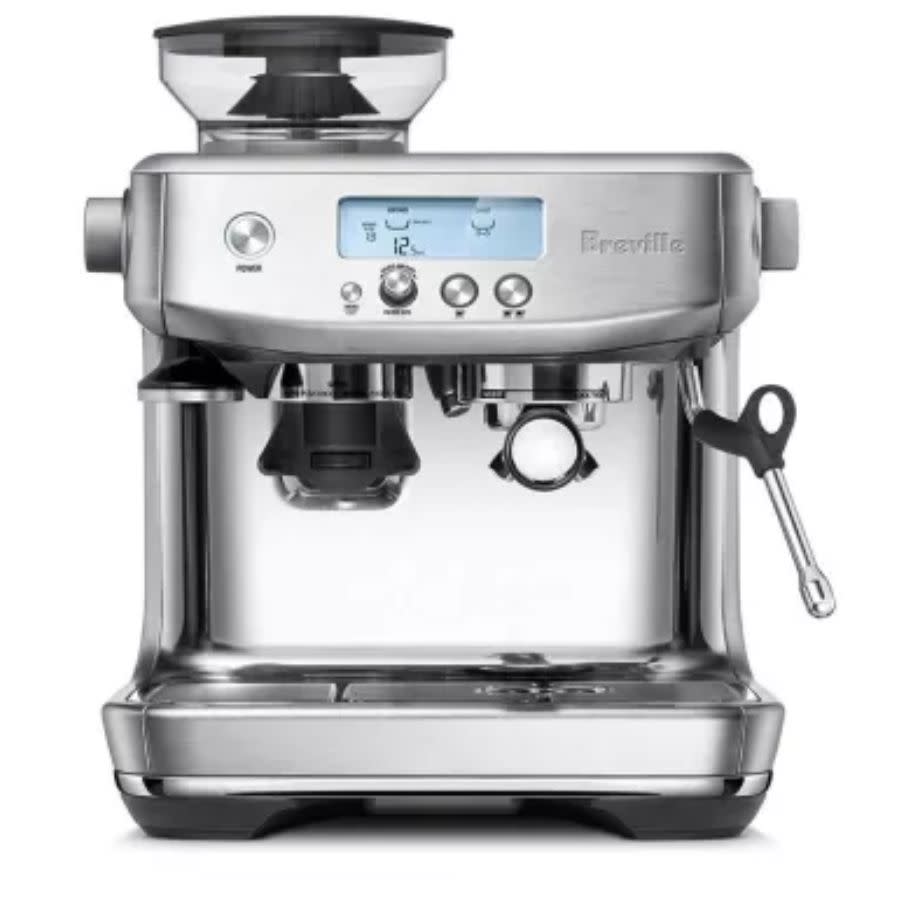
Breville Barista Pro: our barista's favorite espresso maker
An expert espresso machine for professional, barista-quality coffee making, this machine is hard to fault. The adjustable settings mean that you can pull the perfect espresso shot over ice without it turning bitter.
For
Makes amazing coffee
High-quality features
Quick start up
Integrated bean hopper
Easy to clean and refill
Against
Some non-recyclable packaging
Requires some milk frothing practice
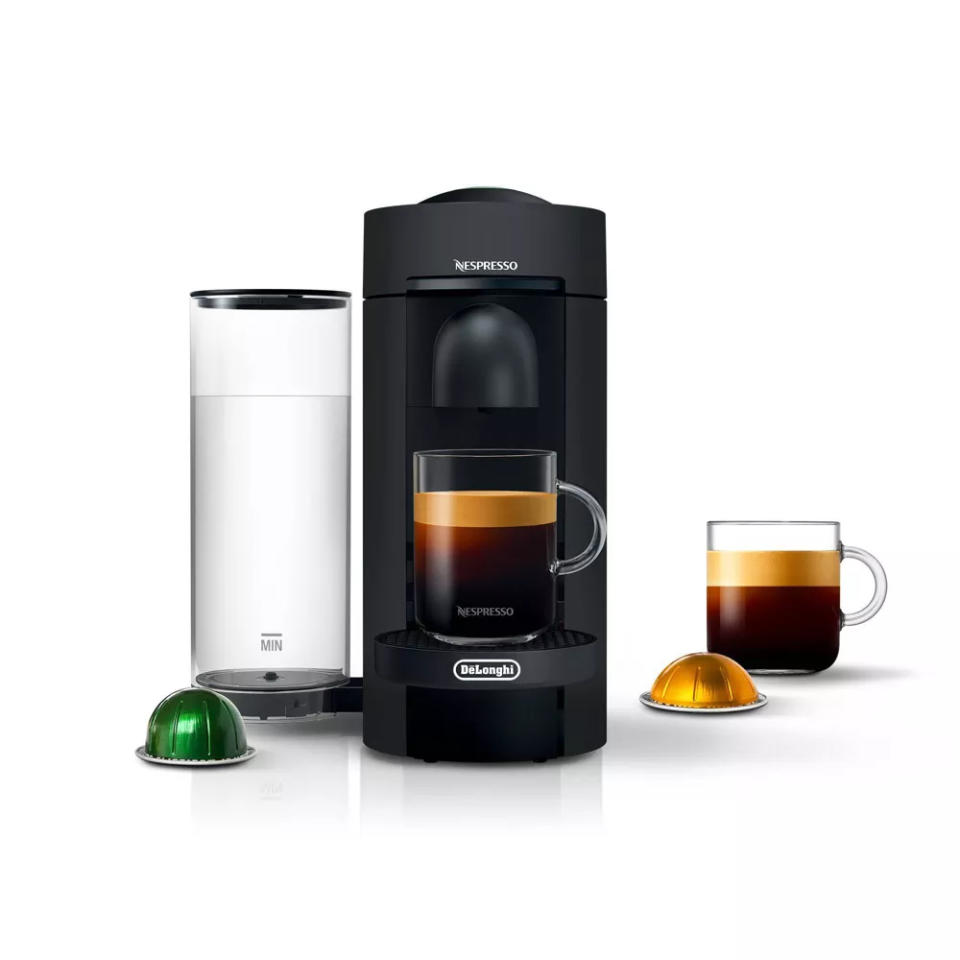
Nespresso Vertuo Next coffee maker review – premium coffee, made easy
An easy option for coffee lovers, Nespresso have launched special pods for iced coffee, so you can enjoy a cold brew without any bitter or acidic flavors. Simply put a pod in, press a button, and you're ready to go.
For
Sleek & stylish design
Easy to use
Smartphone connectivity
Brews a wide range of coffee types
Against
Only compatible with Nespresso Vertuo pods
No temperature control on milk frother
Which coffee makers should I use?
The Dinamica and Barista Pro are well-geared towards iced coffee, but Nespresso's over ice pods would give brilliant flavors too. If you don't have a high-spec coffee maker, a French press or a drip coffee maker would do a brilliant job too. Don't leave your coffee to cool in your French press, because it will over-brew and become bitter, so make sure to pour it into another container.
We asked Genevieve Kappler, Director of Coffee at Roasting Plant, what she would do with these coffee makers and she was full of helpful tips. She said 'When using a Chemex, try Ethiopian beans, because the method elevates their sweet, tropical fruit and delicate floral flavors. I personally like naturally processed coffees like Uganda Rwenzori or any deeply chocolatey, caramelly and spicy coffees that have fuller bodies. If you prepare your coffee in a French press, it will offer a more rich, deep, heavier mouthfeel.'
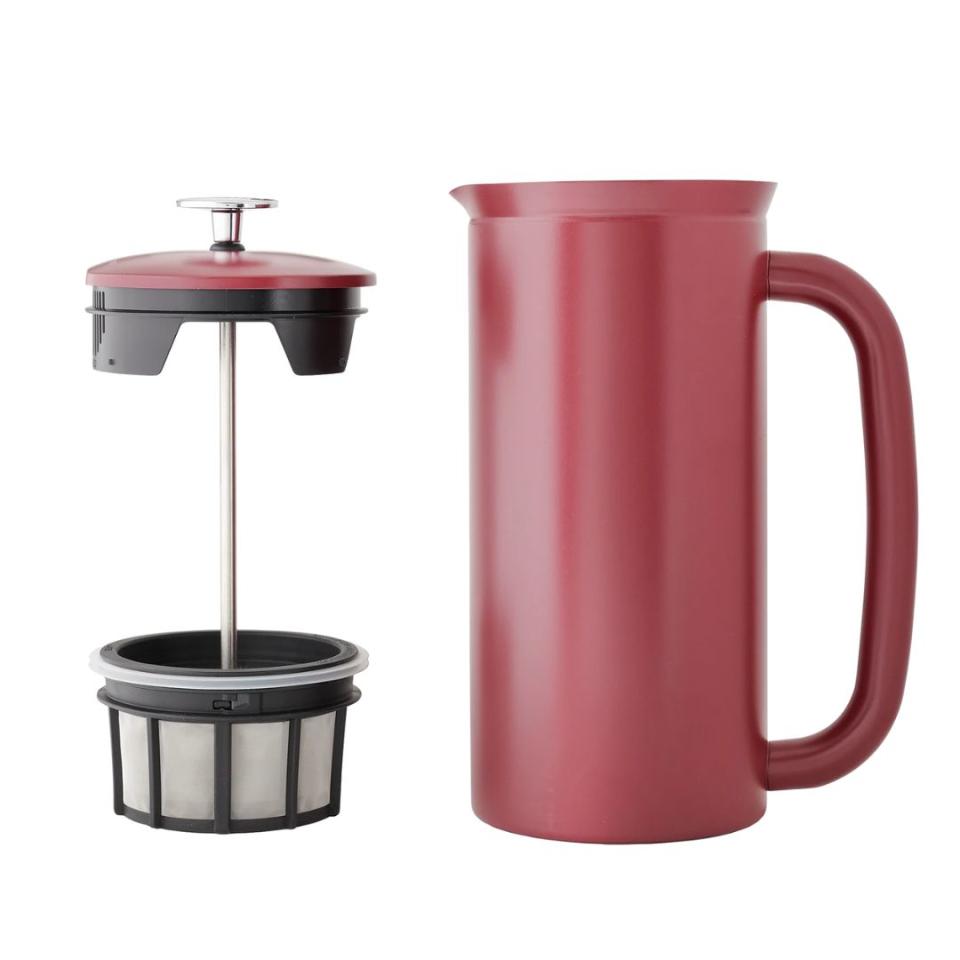
Espro P7 French Press
Espro's French press is an investment. It's more expensive than average, but the stainless steel, double walled, double filter mechanisms means that you'll brew a smooth and aromatic coffee, perfect for icing.
For
Makes a killer cold brew
No risk of broken glass
Easy to use
Insulated design keeps coffee hot
Double filter minimizes graininess
Against
Tight seal makes it more difficult to pull plunger out
Pricier than alternatives
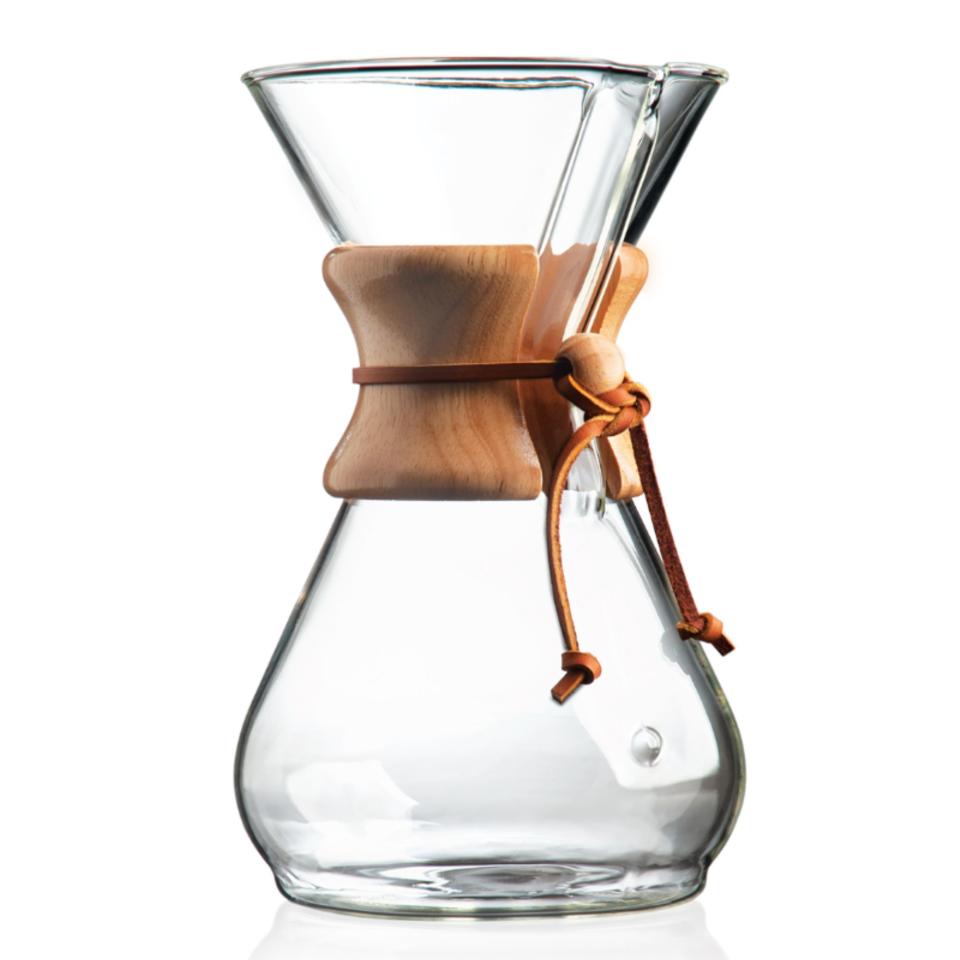
Chemex Pour Over Coffee Maker
We love the Chemex coffee maker, especially for iced coffee. The glass carafe means that you can slow cool your coffee in the same container that it was brewed in. That's less washing up and a delicious coffee too.
For
Creates ultra smooth coffee
Easy to use and clean
Carafe can be refrigerated and reheated without altering flavor of coffee
Against
Must use Chemex filters, which aren’t readily available at retail stores
Extra Tips
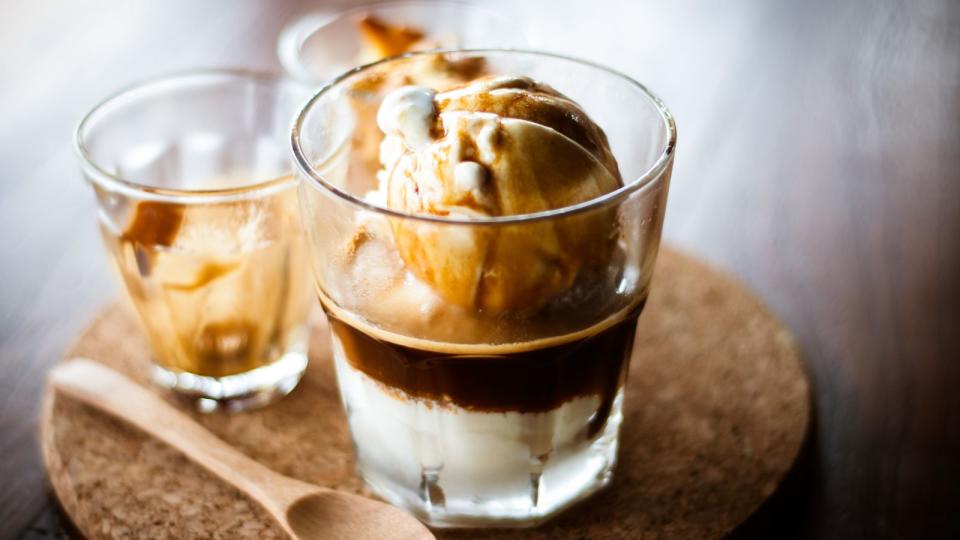
When you serve iced coffee, I would always use a glass. That way, you can see as milk marbles into your black coffee. It looks really beautiful and, because your drink is cold, there's no need for it to be in a thick mug.
Maryna Gray from Bean Box gave us some extra tips for brewing the best iced coffee. She recommended using medium roast beans from Guatemala, El Salvador, Costa Rica, or Honduras. These will have sweet, creamy, and chocolatey flavor profiles, complementing your coffee drink. If that doesn't excite you, she recommends an Ethiopian or Kenyan roast, because they have 'refreshing tea-like fruit notes which shine through when poured over ice'.
If you want to get a little more creative, chef, Alex Kyiv, recommends a number of options. He told me that small amounts of flavored syrups can help to enhance the beans natural caramel, chocolate, and vanilla notes. 'For a healthier option, consider flavoring your coffee with spices like cinnamon or nutmeg.' If you want more subtle sweetness, non-dairy milks like almond, coconut, and oat milk are Alex's go-to option. He also says 'If you prefer your iced coffee sweet, consider using sweetened condensed milk for a creamy flavor, similar to Vietnamese iced coffee'. If you really want to celebrate, you could always add in a scoop of vanilla ice cream, affogato-style.
Michelle Conti, editor of My Morning Espresso, recommended using an accessory called the HyperChiller. To use it, you pour in hot water, let it sit for a few minutes, and pour it into your glass. You can add ice to keep it cool too. It's a great gadget if you want to make iced coffee quickly.
FAQs
Can you just use hot coffee to make iced coffee?
Yes, it's a great way to use up any hot coffee that you don't want to drink. There are lots of methods which you could follow, but the most popular one requires you to pour your hot coffee into a glass pitcher filled with ice. This will melt the ice and dilute your coffee, so make sure that it's strong or that you use coffee ice cubes. When you're ready to drink the iced coffee, pour it into a new cup of ice and enjoy. You can add milks, syrups, and spices to flavor your brew too.
Can I make iced coffee with instant coffee?
You can make iced coffee from instant coffee, although it will make many coffee snobs shudder. I would brew a normal coffee, but with double the quantity of your usual instant coffee. Then, pour that coffee over ice. At this point, the ice will probably melt, so pour your cooled coffee back over another glass of ice and enjoy.
If you're in a rush, another method is to throw instant coffee, ice, and a little water in a cocktail shaker and shake it all up. It doesn't taste amazing, but it's fast.
Why does my iced coffee taste bitter?
If you are brewing your hot coffee directly onto ice, it might taste bitter. However, if your coffee is over or under-extracted, it will also taste bitter. Make sure that you are using the right grind size, water that is not too hot, and the type of coffee beans that you like the taste of and then you might find that your coffee doesn't taste too bitter.
What's the difference between cold brew and iced coffee?
Hot coffee uses high temperatures and pressure to extract the coffee oils from the beans. When cooled and drunk as iced coffee, you'll taste a balance of acidic, bitter, and sweet notes. Cold brew is extracted at room temperature, so is a much slower process. The result is a concentrate which needs to be diluted. It's much sweeter and not acidic at all.
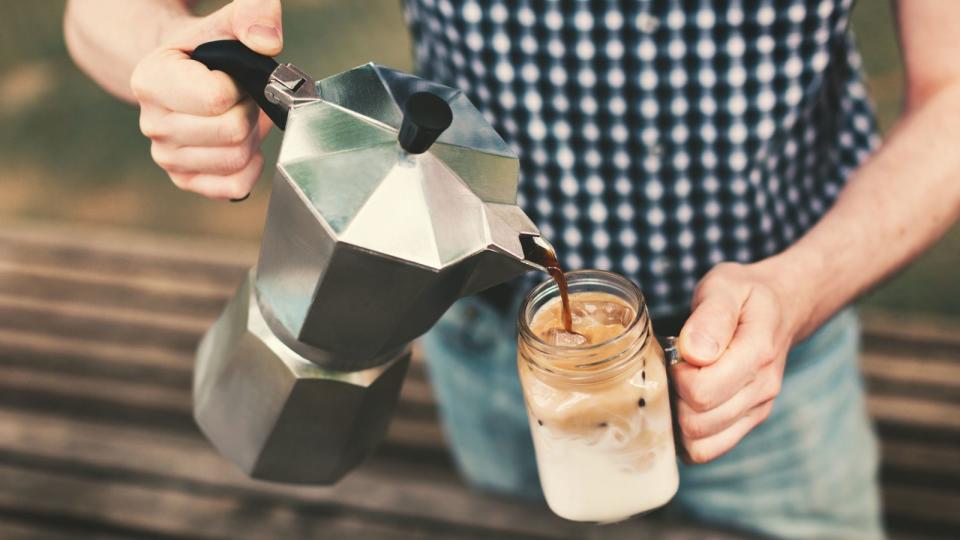
If, like me, you're forever brewing too much coffee, this is a refreshing and alternative way to caffeinate and hydrate, especially when it's warm. Personally, I don't mind the bitterness from flash brewing, because I always add some almond or oat milk, which re-balances the flavor profiles. If I'm in a hurry, I tend to brew an espresso shot, then add cold water and a couple of coffee ice cubes. Replacing hot water with iced water cools the coffee at a slower rate than ice, but quick enough for me to enjoy it. If that's too bitter for you, I'd recommend trying cold brew.

